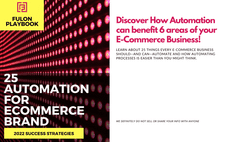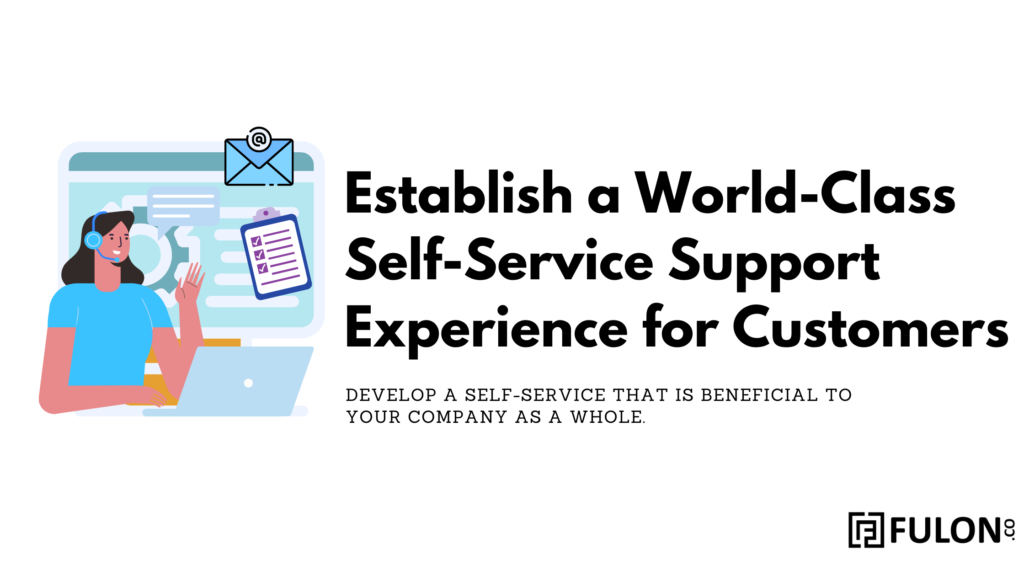Table of Contents
Introduction
Did you know that marketing now incorporates customer experience? Some even claim that it is the new marketing. It shouldn’t come as a surprise because the vast majority of dissatisfied customers won’t complain to you directly but instead will tell others about a subpar product or level of customer service.
Providing customer service is one of the undervalued ways to connect with customers, create brand equity, and humanize your business in this age of digital connectedness.
When starting a small business, customer service might not be the first thing that comes to mind, but it should be! When you provide exceptional customer service, people pay attention. For small businesses, who probably already provide this kind of service, it’s a straightforward victory.
Why should you make a self-service investment?
People are increasingly unwilling to speak with sales and service representatives. Customers today expect simple, convenient, real-time experiences that help them make better decisions, learn more about your products and services, and become more self-sufficient. Discover how customer self-service can revolutionize satisfaction.
To create growth and profitability, self-service is the best way to educate, engage, serve, and transact with your customers. It combines knowledge, services, and data to create seamless experiences, and it is replacing static product support websites and knowledge bases worldwide.
Self-service is a shift from waiting for customers to call to putting customers first. So help them. Customers want to learn and educate themselves quickly and conveniently. Additionally, self-service has advantages for your business as a whole, bringing advantages to every department from customer service and marketing to product development and sales.
Establish efficient self-service possibilities
Instead of adding or updating channels, the secret to enhancing the customer experience while lowering live call volume is a significant change in service strategy that prioritizes live service interactions for high-value, urgent, and complex contacts.
Service leaders must take a strategic approach to connection options in order for self-service to predominate:
-
Create a self-service plan that puts resolution.
-
Manage self-service options like a product rather than an IT undertaking.
-
Avoid self-service abandonment through design that inspires confidence.
-
Talent management techniques should develop for a self-service-dominant strategy.
Post-Purchase Email for E-Commerce
Post-purchase emails serve to confirm order details in addition to informing your customers of important information about their orders. Additionally, you can use them to educate your customers about your business, its products, and the benefits of doing business with you, which can boost client loyalty and lifetime value.
Post-purchase emails that are executed properly will:
-
Make the customer experience outstanding
-
Prepare the ground for a reorder
-
Make sure the product is received well.
-
Take customer feedback seriously.
-
Try to lure visitors to return to your website.
Automated Customer Service
Chatbots are often mistakenly thought of as customer service automation software when people hear the term “customer service automation,” which is an unfortunate misunderstanding. In truth, this emerging market has enormous potential to boost a customer service team’s productivity. It involves much more than just chit-chatting and keeping in touch with the customer.
Traditional customer service workflows are prone to human error and dissatisfaction, involve lengthy wait times, and devour valuable time. The core of customer service automation is the reduction of human involvement through the use of self-service platforms, automation, and increasingly, chatbots with AI capabilities.
Eliminating the human factor from the equation initially seems counterintuitive. However, using automated customer service tools and solutions makes perfect sense for both customers and service agents given the repetitive work in customer service. With front-end self-service applications for customers and back-end workflow automation tools for agents, businesses can automate customer service on both ends. As a result, customer tracking and optimization are greatly improved and customer service costs are reduced significantly.
Get your Playbook!
Top 25 Automations for
e-commerce brand selling on Amazon.
Download for free!
Best Practices for Customer Service Automation Implementation
Following these guidelines will help you implement customer service automation and reap its benefits for your business:
Plan & Execute
After deciding to automate customer service, one of the first things you should do is plan the execution. Determine your needs and the ways an automated system can help you first. Imagine that your team is frequently overloaded with repetitive queries, or that a metric like average handle time is steadily increasing. In that situation, automation may be able to address some process inefficiencies.
Understanding the requirements of your customers will help you determine which processes and tasks should be automated. Self-service tools, repetitive support cases, checkout pages, knowledge bases, etc. may fall under this category. Use macros, scripts, and templates to scale the team’s work.
Balance Human Touch & Automation
It is crucial to remember that automation is only a tool and cannot completely replace human support when automating your customer service. This is likely the best procedure to use when implementing automated customer service. Automated customer service undoubtedly enhances the experience for both clients and agents. But because it enhances customer experiences, the human touch shouldn’t ever be given up in favor of automation.
Instead of trying to replace support agents, your objective should be to make their jobs easier and give customers the prompt assistance they require. In order to balance automation and human support, the system should seamlessly incorporate both. Always provide a way for customers to contact a live agent if necessary.
Multi-Channel Approach: Think About It and Use It
The customers expect you to respond to them in a timely manner if you provide support through a variety of channels. Even though it might not be simple to respond to all of the inquiries on various platforms manually, automated services can be combined to create collaborative multi-channel automation, which is useful.
Agents should be able to view all customer inquiries stacked on one dashboard thanks to the customer service software that unifies data from support tickets, live chat, phone recordings, messages, and social media on a single platform. As a result, scaling the support time for various customers is made simple.
Customize the Automated Support
It’s completely acceptable to use automated canned responses as long as they don’t come off as robotic. While it is not necessary to make automated responses appear human, it is crucial to personalize and adapt them according to the problem.
By including customer information like name and purchase history, agents can customize templates and pre-written responses. Personalizing correspondence in this way will give them that extra friendly touch that your clients will undoubtedly appreciate.
Select the Customer Service Software using your requirements
Tools for automating customer service can help businesses of all sizes and types by streamlining self-service to increase client loyalty and satisfaction. Although there are many software options on the market, it is crucial to pick the right one for your needs. What works for eCommerce might not work for IT companies, and customer service features for SaaS might need to be completely different from those for e-commerce.
Finding the ideal balance of functionality and features for your company is essential because the software is essential to your customer service effectiveness. Additionally, make sure the software has an intuitive user interface and is simple to use. For your agents to handle routine tasks with ease, it should also be user-friendly.
Process of setting up continuous Customer Feedback on automation
Customer opinions are always important because they are correlated with customer satisfaction. A rating and feedback section should be available at the conclusion of every customer service interaction.
Low ratings should give the manager the opportunity to connect with customers and enhance their experience. If any operational hiccups are found, they can be fixed before they have a more serious negative effect.
Regularly auditing everything, including the responses, knowledge base, chatbot responsiveness, etc., is another effective practice. You run the risk of losing customers to competitors if your automated customer service does not develop along with the rest of your company.
Give customers the option to use the “Escape Hatch”
Some clients demand a personal touch or prefer to speak with customer service representatives directly. Therefore, offering customers a quick way to communicate with agents rather than the automated system is always a good idea. You can offer the choice of leaving a message for after-hours requests, which will be answered as soon as possible.

For more information on how to boost reviews and sales without spending a lot of money, read this blog and look into the Amazon Support Triad Model™.







